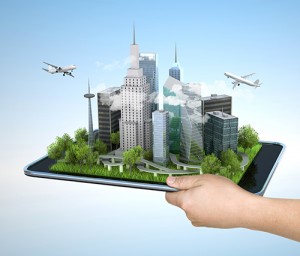 Anheuser-Busch just made the first ever beer run in a self-driving truck. The truck delivered 51,744 cans of beer from Ft. Collins, CO to Colorado Springs, CO while the driver monitored the trip from the sleeper cab, at least on the Interstate 25 portion of the ride. The historic delivery was made by Otto, the trucking arm of rideshare company Uber, partly to showcase their capabilities and partly to deliver beer. The inaugural run had the full backing and blessings of the state of Colorado.
Anheuser-Busch just made the first ever beer run in a self-driving truck. The truck delivered 51,744 cans of beer from Ft. Collins, CO to Colorado Springs, CO while the driver monitored the trip from the sleeper cab, at least on the Interstate 25 portion of the ride. The historic delivery was made by Otto, the trucking arm of rideshare company Uber, partly to showcase their capabilities and partly to deliver beer. The inaugural run had the full backing and blessings of the state of Colorado.
I have written about autonomous passenger vehicles and recently wrote about the development of flying cars. I wonder how these developments will change the landscape of cities. If in the future we just rent cars by the mile to take us to work and back, where will they go at night? Or will the same car be used at night to take us to the theater? Will there need to be as many cars, since people can share them? How will this change how we live? How we think about car ownership and the role of vehicles in a community could change. Just as we have moved to software as a service for our computing needs, we could soon have city as a service for transportation.
The Next 100
BMW just wrapped up a worldwide series of presentations they called the Iconic Impulses Tour. The final show was two weeks ago in Santa Monica, CA and highlighted their vision for BMW’s next 100 years. In addition to introducing new concept cars from Mini, BMW, and Rolls-Royce they are rolling out their vision of how these cars will fit into a new urban environment. To this end, BMW/Mini has created a venture accelerator called URBAN-X to encourage entrepreneurs to help develop their vision.
URBAN-X
The mission of this new venture is “to catalyze, educate, invest in and advocate for startups who are shaping the future of cities through technology.” I assume they are hoping that future includes vehicles, however they are encouraging forward thinking about all aspects of the urban experience. If you are a successful applicant, you get $60,000 in seed money and access to hosting, legal consultation and proprietary software. You also get a chance to spend three months with business developers and engineers from Mini to help bring your idea to fruition. Some of their recent ventures include Brooklyness which makes an intelligent bike helmet, CTY which creates data analytics products for traffic flow, and Nello which makes keyless entry products though a smartphone app. The application deadline to join the next group of lucky entrepreneurs is November 29th, details at urban-x.com.
Thoughts
I am impressed that an automobile company is thinking ahead to a time when there are fewer cars and limited private car ownership. I assume that the car companies will own the vehicles and make money through subscription services, like today’s cloud service providers. With this scenario, the city will indeed look different and perhaps we can convert at least some city parking to green space and make other improvements. What ideas do you have for the future cityscape? Perhaps your idea is worthy enough to attract funding from a car company. Let me know your thoughts.
Kelly Brown is an IT professional and assistant professor of practice for the UO Applied Information Management Master’s Degree Program. He writes about IT and business topics that keep him up at night.


